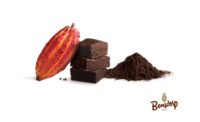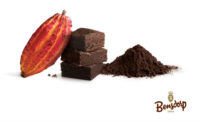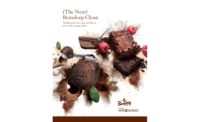Exclusive interview: Barry Callebaut on its new Bensdorp Natural Dark cocoa powder

Today, Barry Callebaut hosted a livestream to have journalists taste its new Bensdorp Natural Dark cocoa powder (in brownie/muffin form), which will officially debut at IBIE in Las Vegas next month. After the livestream, Snack Food & Wholesale Bakery was able to talk to Leanne de Muijnck, global director of cocoa R&D, Barry Callebaut, about the new cocoa powder.
Liz Parker: What spurred the need for Natural Dark?
Leanne de Muijnck: The need is really coming from the consumer end. There's a lot of consumers these days, like younger people, that are looking for products that are natural. And so we have these two groups of cocoa powders, the natural and alkalized; specifically in North America and the US, when you use an alkalized cocoa powder, you also have to put it on the label. You have to say "cocoa process with alkalized." Consumers are looking for something that has a clean label, so that would just say, cocoa without the alkaline portion. Also in Europe, there's a legislation that, if it's over 7 percent, you will need to declare it, and therefore you're not able to declare the product as natural anymore. So it is a very clear consumer trend, and it's a global transfer, the need for natural products.
LP: That was going to be another question, but you just answered it. Why is alkaline no longer used—because it's not considered "clean label"?
LM: No, it's still used. When you look at the overall group of cocoa powders, maybe 25 to 30 percent is natural. The other part is cocoa processed with alkaline. It depends a little bit upon the markets, region by region, that these percentages are a bit different. But we see this product in Natural Dark as complementary to what is already out there on the market and so it may find its way into new products. It may replace some of the alkalized cocoa powders. However, alkalized by itself, is a very well-known process, and very safe. There's nothing particularly wrong with it. But today's consumers are looking for options that are natural and clean-label.
LP: When will Natural Dark be available to the U.S. bakery market?
LM: It will be introduced at IBIE, in Las Vegas. September 7 till 10. We will have it in our booth. And as of then, it's commercially available for the North American market or global markets, not just for North America.
LP: In the livestream, you mentioned that Natural Dark took more than two years to develop. Why is that?
LM: It's a dramatic difference in flavor and also in color. And it's not that easy to get from a standard process, to finetuning and developing in a way that you get this dark color and flavor. About halfway, we got the color but not the flavor. And again, we had to go back to the drawing board. It always starts with you know, checking our file, to internal research, with a pilot plan, and then bringing it up to industry scale. There's time needed to get to that process. You know, we wish it would be one year or half a year, but that's also the nature of knowing the product; that generates your knowledge applied to the processes and then getting to where we want to be.
LP: Do you think its 100 percent all-natural / 100 percent vegan status will help attract consumers to the product?
LM: Absolutely. It's a great merit, so to speak. Also, the cocoa by itself is already vegan. There are no animal products involved. There's no dairy so it doesn't stand out in that particular way from all the other cocoa powders, but it does give an additional color-flavor option that you don't see in the standard packages that we have right now.
Looking for a reprint of this article?
From high-res PDFs to custom plaques, order your copy today!







